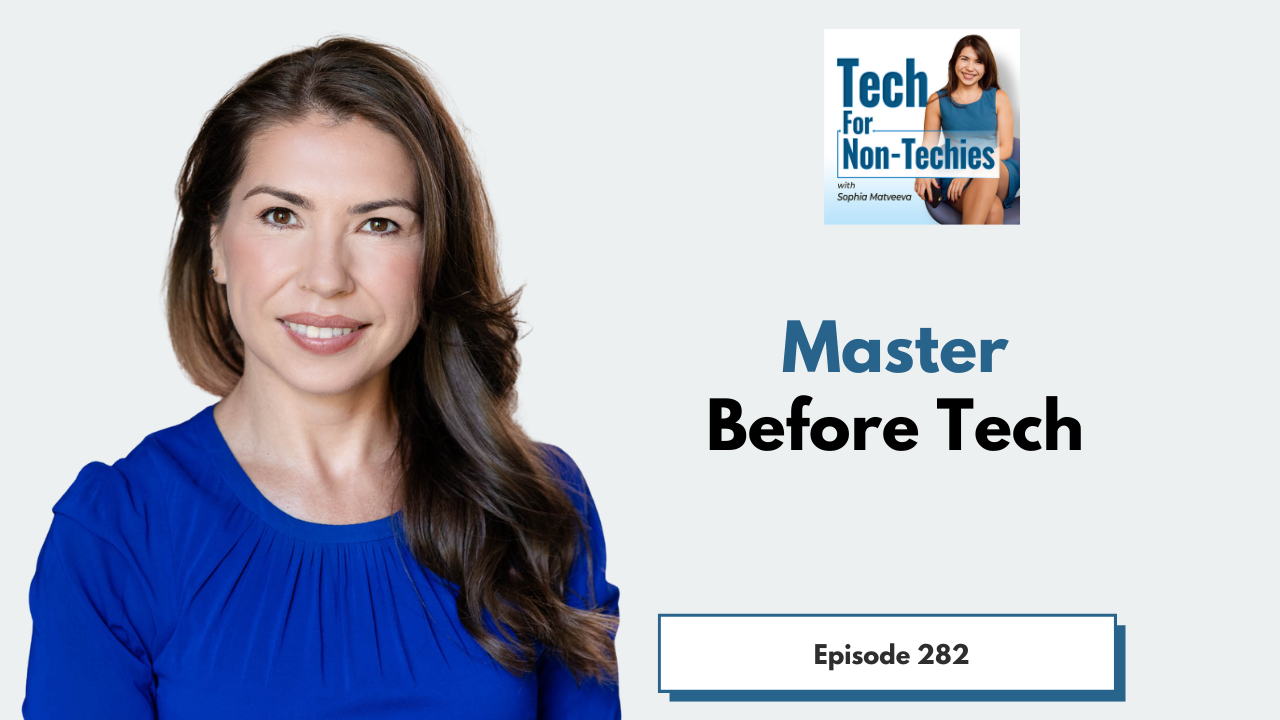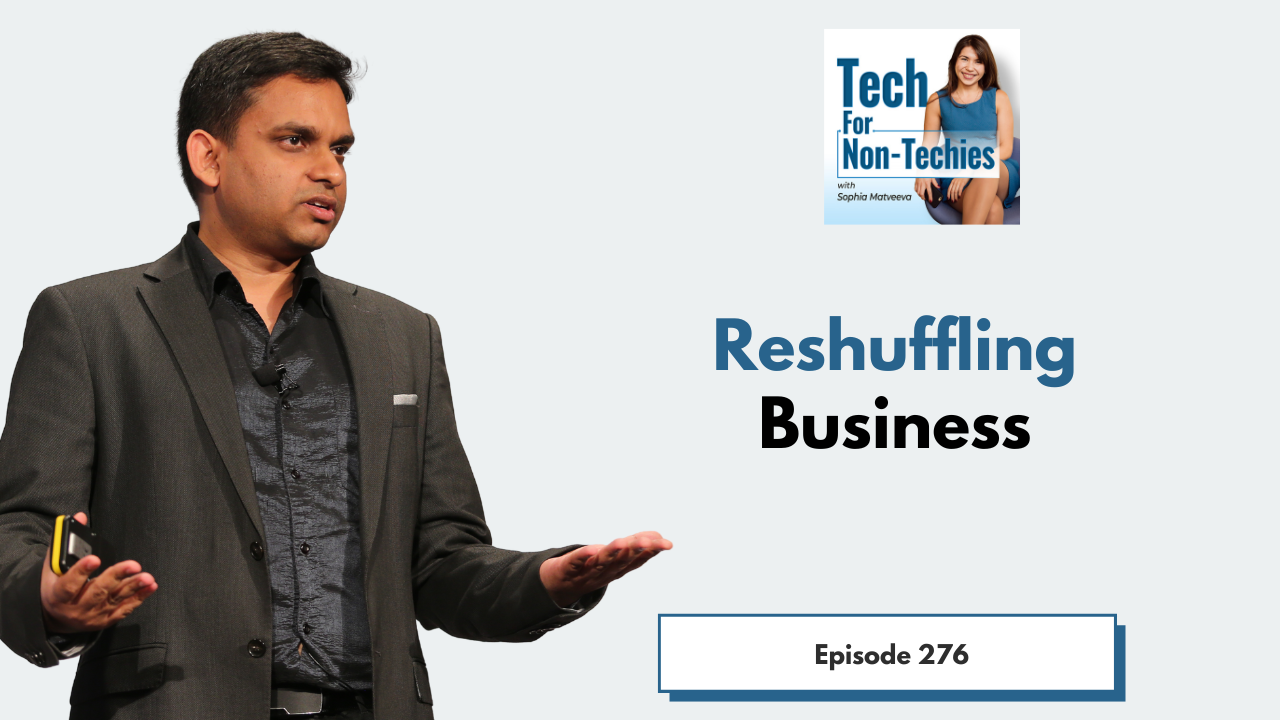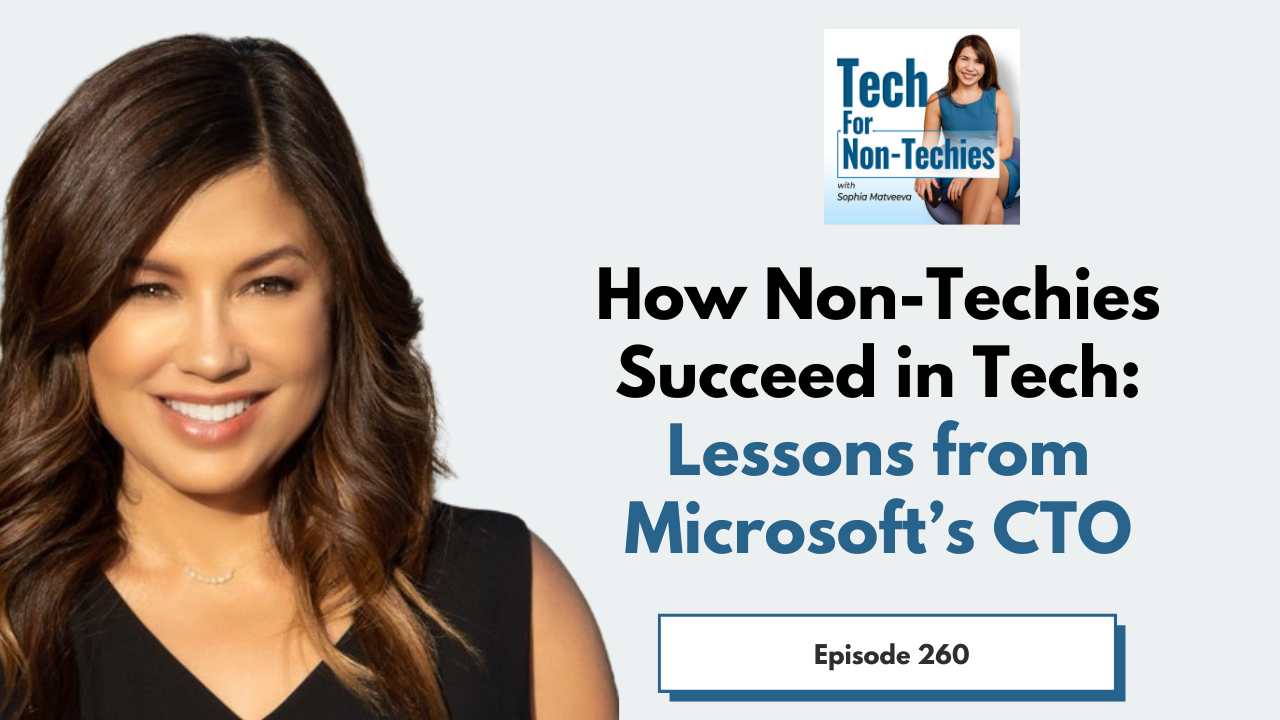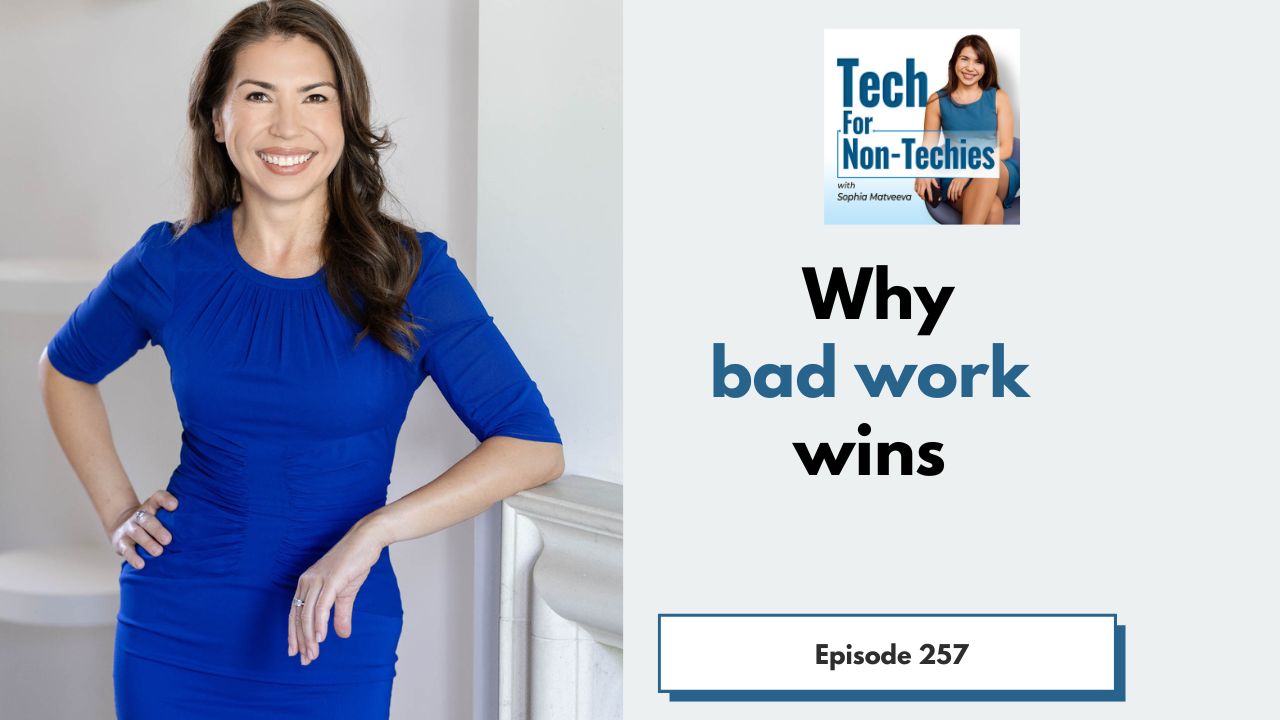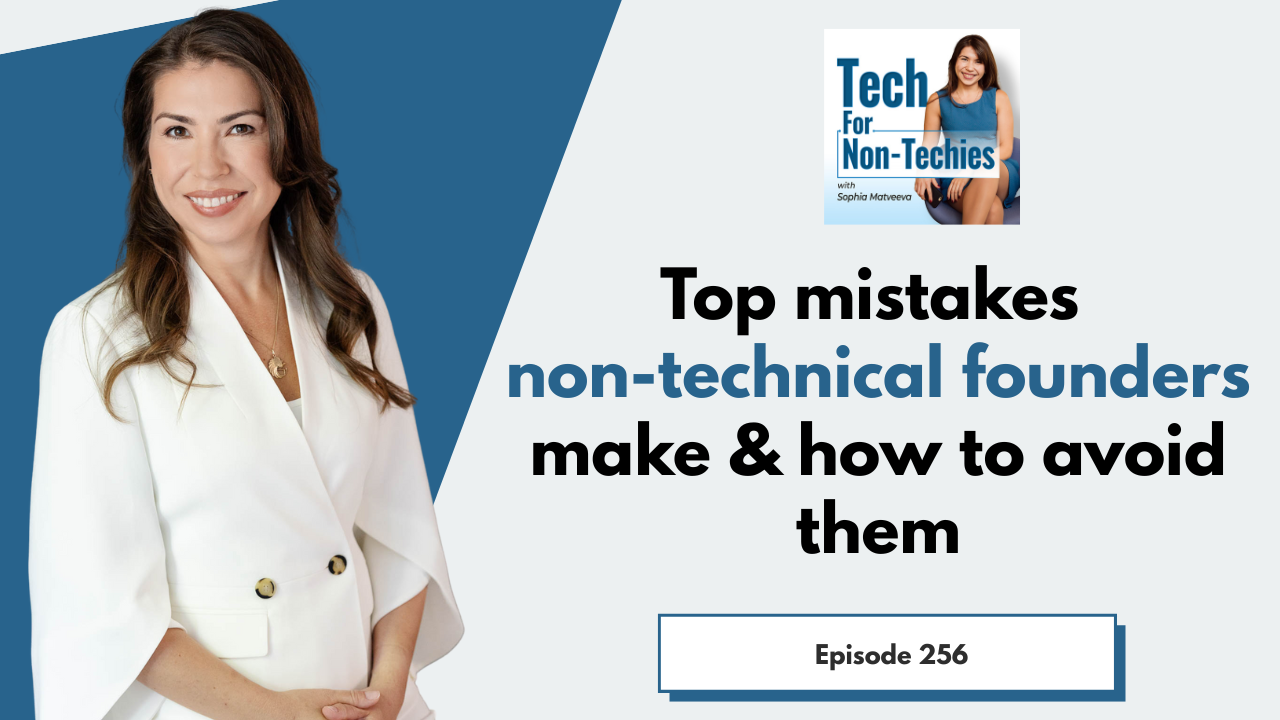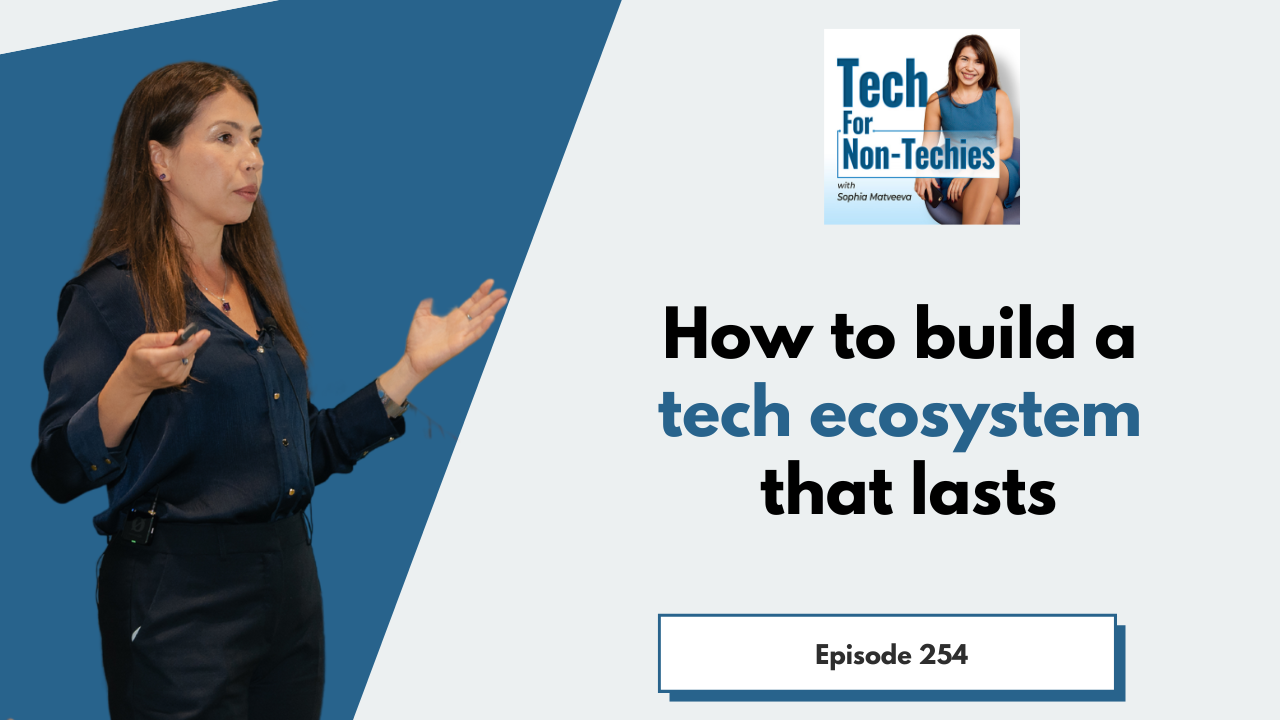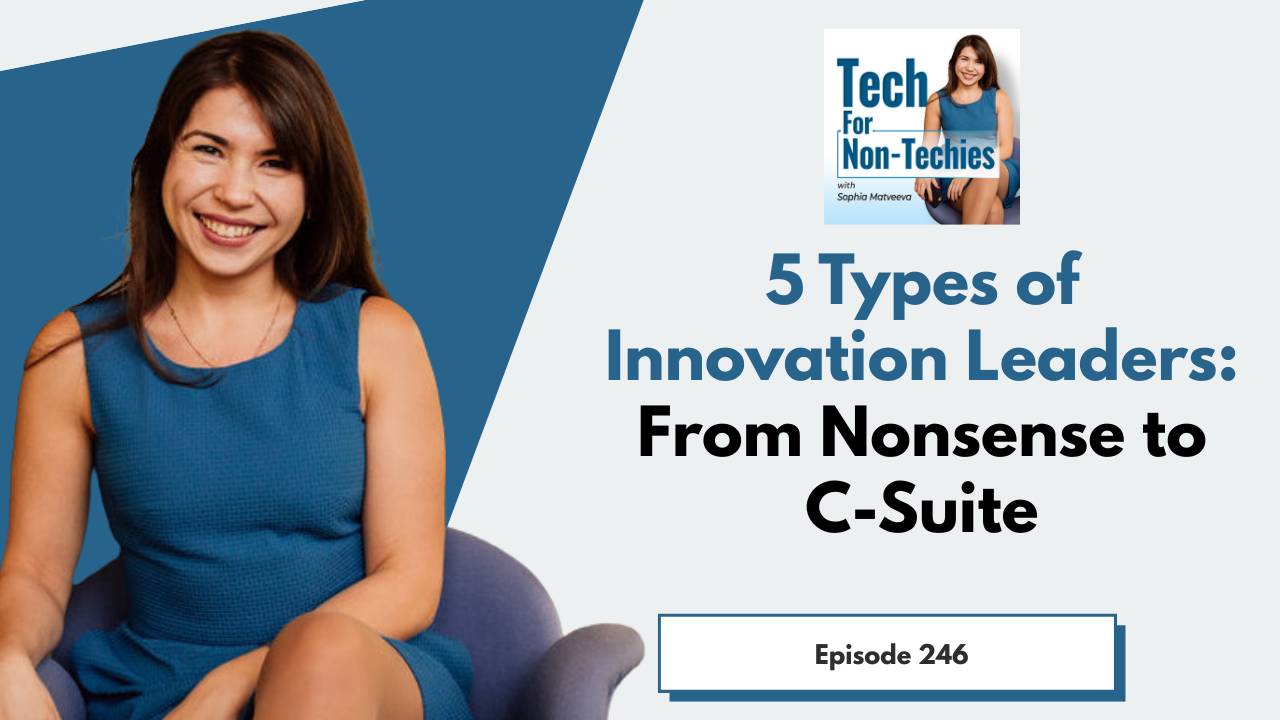Most people dive into tools, stacks, and AI hacks the moment a new idea lands.
Sadly, that’s the fastest way to burn cash and momentum.
Here’s the thing: before you touch a single line of tech, you need to master the skillset the best companies in the world return to again and again — the skill...
How many founders think AI is about faster automation?
What if the real opportunity lies in reimagining how entire systems work?
Sophia Matveeva sits down with Sangeet Paul Choudary, best-selling author of Platform Revolution and Re/Shuffle: Who Wins When AI Restacks the Knowledge Economy, to e...
What does it really take to lead in tech without a technical degree?
In this episode, Jennifer Byrne, former CTO of Microsoft US, shares how she built a top-tier tech career starting with a psychology degree — and why understanding context, not code, is your key to success.
You’ll learn:
-
H
...
Most founders dive straight into building — features, user flows, no-code tools — before they’ve nailed the strategy that actually drives traction: brand.
In this episode, Sophia Matveeva shares why brand must come before product, especially for non-technical founders building tech-enabled busin...
Analysis paralysis is BORING. And it doesn't get you results.
Most founders think they fail because of the market, the product, or the pitch.
But the real killer is a slow mindset.
In this episode, Sophia Matveeva shows you why bad work beats perfect ideas — and how shifting your mindset ca...
If you’re building a tech product but don’t have a technical background, this episode will save you months of wasted time and thousands in unnecessary spend.
In this re-release of one of our most popular early episodes, Tech for Non-Techies founder Sophia Matveeva shares the 5 biggest mistake...
What does it really take to build a tech ecosystem that endures — beyond PR launches and startup grants?
In this episode, Sophia Matveeva shares hard-won insights from working with governments, corporates, and investors on the frontlines of global digital transformation.
Whether you’re funding...
Phil Knight spotted better running shoes in Japan — and turned that insight into Nike, one of the world’s biggest brands.
In this episode, you'll learn how thinking internationally sparks breakthrough ideas — and how to build a global edge into your career and business.
This episode is for you ...
The more technology you put into your product, the worse it can get.
In this episode, Sophia Matveeva talks with Zahra Almahoozi, founder of DARB and recent graduate of the Tech for Non-Technical Founders program in Bahrain.
Discover how Zahra's "less is more" approach helped her build a startu...
Here are the listener questions Sophia Matveeva answers in this episode:
- What should I be asking in product meetings if I don’t have a technical background?
- I’m leading a digital transformation initiative, but my tech team keeps telling me things take longer than expected. Should I push back? ...
Some "Heads of Innovation" are glorified event planners while others transform entire businesses.
In this episode, you'll learn how to identify which type of innovation leader you're dealing with and what that means for your career or business.
This episode is for you if you:
- Want to pursue ...
Cryptocurrency is becoming a bigger financial and political force in our world, especially after Donald Trump's return to the White House.
This is why smart people who want to have an impact in the world need to learn about it.
But, learning about crypto is difficult, because the loudest voices...

